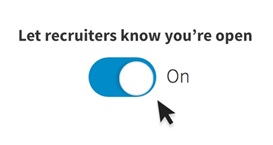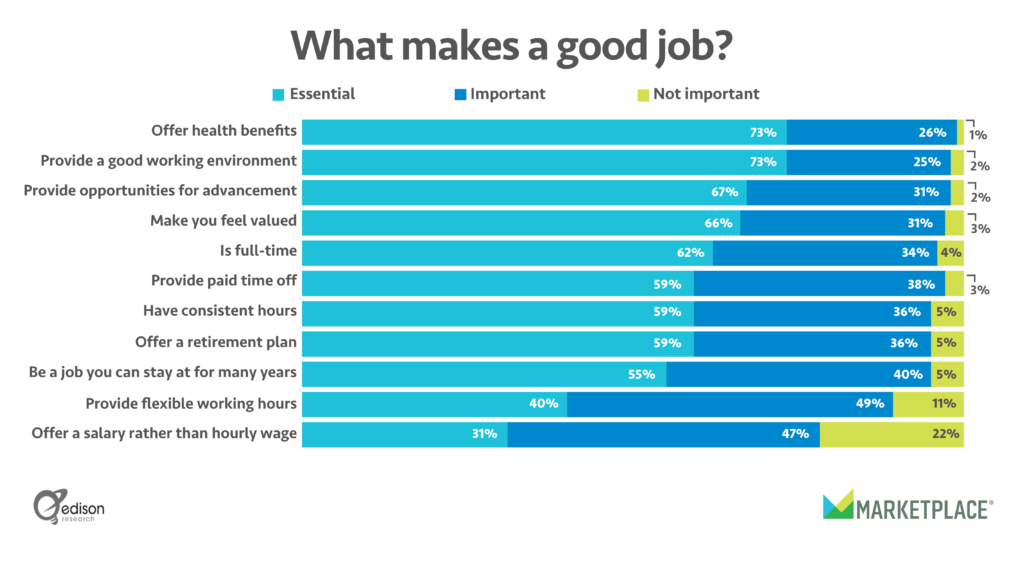
A lot has changed since we rang in a new millennium and survived the panic over Y2K. Between 9/11 and the Great Recession, many of the givens have been shaken, and in some cases, shattered. Our current presidential election provides a real-time example that the norms as we knew them are history.
And so it is true in the job market. Earlier this year, CNN Money reported that people are changing jobs – and even careers – at a faster rate than at any time in history. They quoted a study by LinkedIn revealing that on average, Millennials have four jobs by the time they hit the ripe old age of 32.
It’s always smart to follow your own research, and that’s why it’s interesting to note that LinkedIn is now making it even easier to switch jobs – without your current employer having a clue. They’ve just instituted a new service called Open Candidates.
 According to Recode, LinkedIn users can simply indicate they’re looking, while keeping this information out of the hands of their current employers. The only people who see these Open Candidates profiles are recruiters who pay a steep fee – $9,000 – for the privilege. Thus, LinkedIn is enabling much of this hyperactive career mobility. That may be good for them, but perhaps not as beneficial to the many companies and brands that would just as soon keep their employees from moving around.
According to Recode, LinkedIn users can simply indicate they’re looking, while keeping this information out of the hands of their current employers. The only people who see these Open Candidates profiles are recruiters who pay a steep fee – $9,000 – for the privilege. Thus, LinkedIn is enabling much of this hyperactive career mobility. That may be good for them, but perhaps not as beneficial to the many companies and brands that would just as soon keep their employees from moving around.
The fields in which job hopping are most prevalent? Government, non-profits, and of course, media and entertainment. That’s no surprise to most of you reading this blog.
The radio business has always been famous for its “frequent mobility.” It’s been said that Atlas Van Lines and U-Haul have been the big winners over the decades as radio people move across the country, in search of that next great on-air, programming, or sales gig. With this new tool from LinkedIn, we’ve come a long way since “Pros On The Loose,” a regular feature in the late great Radio & Records.
I’ve been amazed on National Radio Day (August 20) to see how many radio veterans post their resumes on Facebook. Many have more than 20 radio stations on their career lists, a majority of which are in different cities and towns. Radio has a reputation for being a transient business where it’s become normal to pick up stakes and keep moving to the next big opportunity.
And yet, the irony is that the stations that often perform best over time tend to have the most stable management teams and airstaffs in place. Stability doesn’t always translate to success, but my very unscientific look at some of the highest ranked stations – in terms of both ratings and sales – point to station staffs that tend to be stable. On the other hand, brands where they come and go often struggle to achieve success.
In my world, I think about programmers like Dave Richards, Jack Daniel, John Hager, Mark Hamilton, Bill Weston, Kevin Weatherly, Larry McFeelie, Mark Pennington, Carl Craft, Randy Hawke, and Bob Bellini. Pardon me for not naming them all, but this is just a handful of pros who have been fixtures at their stations – and the results usually speak for themselves. There are people like this throughout the radio industry who commit to their stations and their communities by building great teams that are built to last.
Given the tendency for many radio companies to constantly shift, reassign, redeploy, and redraw their flow charts, it’s no wonder their track records are often spotty. There’s a lot to be said for keeping teams intact because that shared experience and institutional knowledge often play a major role in a brand’s staying power.
So if the goal is to retain great people and build teams that mesh well with one another, the onus is on companies and clusters to create stable, rewarding environments where people want to work, play, and do this thing we call radio. Yes, it’s a business, but it’s also an avocation – something that we do not just to earn a paycheck but because we enjoy it.
And that brings us to what motivates us in the first place. What are the factors that contribute to the definition of “a good job?” Last year, Marketplace and Edison Research collaborated on a poll that tried to answer that question. They ranked the essential occupational elements – the main drivers that Americans say are most essential to a fulfilling work situation.
As you can see on the chart below, outside of health care, it’s clear that work environment, a viable path to advancement, and the feeling of being valued are three key components that are universal. At least two-third of their respondents point to these job qualities as being most important: 
It’s never been more important for radio to retain its best people as the battlefield expands in the digital arena. Keeping these values in mind is part of the process in the quest to retain all star performers.
And making sure they’re not motivated to check that box on LinkedIn.
- What Is It With Female Robot DJs? - April 30, 2025
- Why “Dance With Those Who Brung You” Should Be Radio’s Operating Philosophy In 2025 - April 29, 2025
- The Exponential Value of Nurturing Radio Superfans - April 28, 2025




Leave a Reply